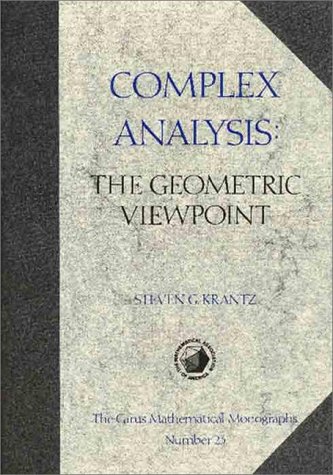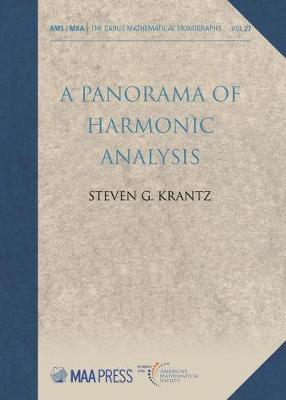Carus Mathematical Monographs
2 total works
Geometric methods have been used in complex analysis since the 1930s. Since that time they have become a central part of the research activities of complex analysis. However, these important techniques have never found their way into a text accessible to a broad audience. Steven G. Krantz, a leading worker in complex analysis and a well-known mathematical expositor, has written the first book explaining how complex analysis can be studied using methods of geometry, using the minimum of geometric formalism to gain a maximum of geometric and analytic insight. The climax of the book is an introduction to several complex variables from the geometric viewpoint. The author assumes no background in Riemannian geometry, and only one semester of complex analysis (a review of relevant topics in the classical theory of one complex variable is provided). This inviting book will appeal to students in mathematics, applied mathematics, and physics.
A Panorama of Harmonic Analysis treats the subject of harmonic analysis, from its earliest beginnings to the latest research. Following both an historical and a conceptual genesis, the book discusses Fourier series of one and several variables, the Fourier transform, spherical harmonics, fractional integrals, and singular integrals on Euclidean space. The climax of the book is a consideration of the earlier ideas from the point of view of spaces of homogeneous type. The book culminates with a discussion of wavelets-one of the newest ideas in the subject.
A Panorama of Harmonic Analysis is intended for graduate students, advanced undergraduates, mathematicians, and anyone wanting to get a quick overview of the subject of cummutative harmonic analysis. Applications are to mathematical physics, engineering and other parts of hard science. Required background is calculus, set theory, integration theory, and the theory of sequences and series.
A Panorama of Harmonic Analysis is intended for graduate students, advanced undergraduates, mathematicians, and anyone wanting to get a quick overview of the subject of cummutative harmonic analysis. Applications are to mathematical physics, engineering and other parts of hard science. Required background is calculus, set theory, integration theory, and the theory of sequences and series.

